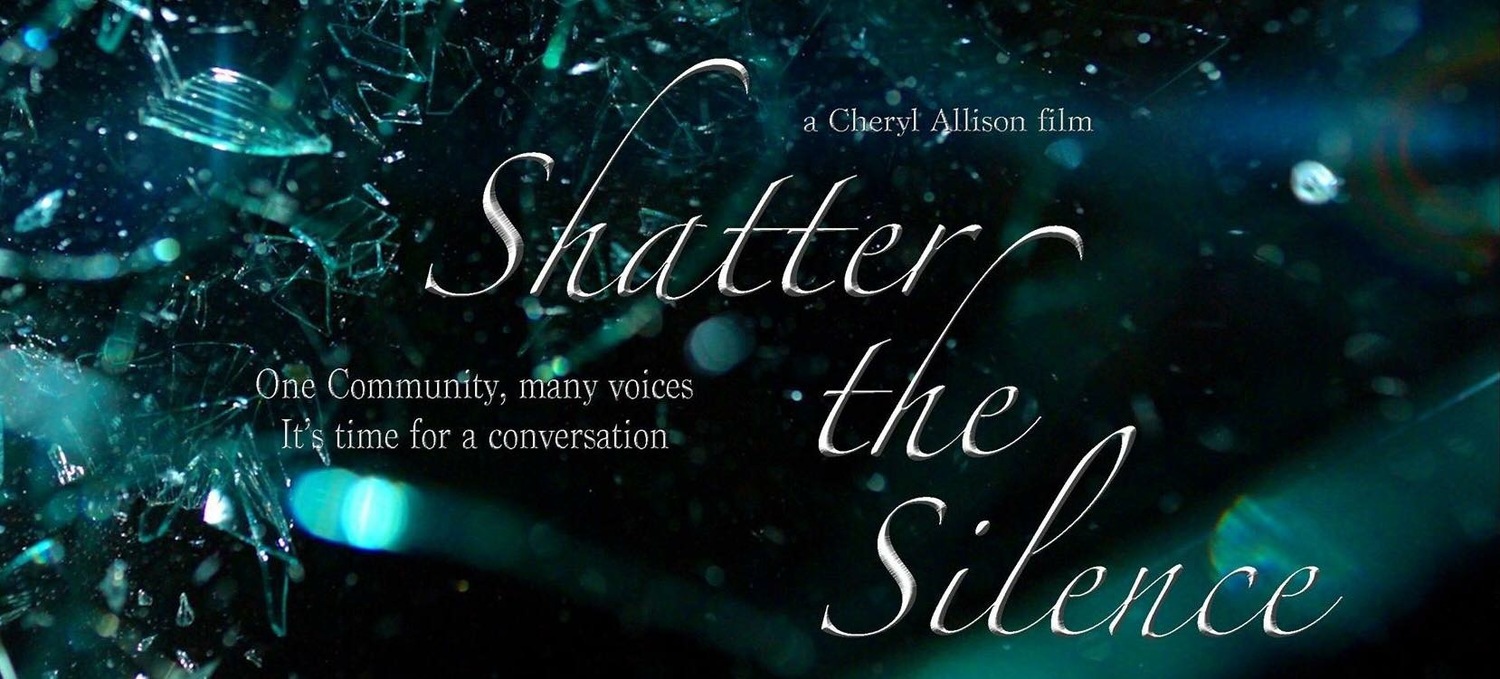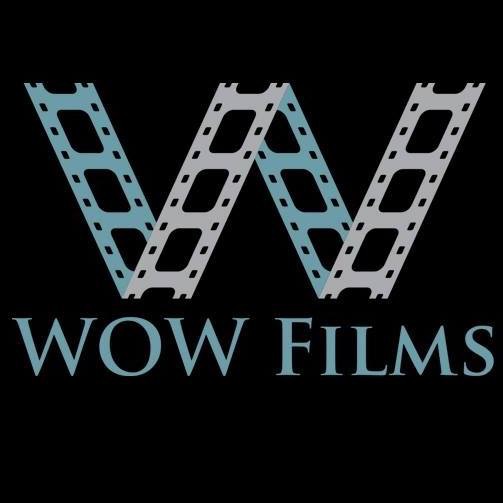Interview: SHATTER THE SILENCE Documentary by Cheryl Allison Takes Shape

With her upcoming documentary SHATTER THE SILENCE, Cheryl Allison, the award-winning Director/Producer and founder of WOW FILMS, hopes to shine a light on critical conversations taking place in Dallas, Texas.
In her description of the film, Allison writes - "It starts at home. One community at a time. Politicians, Religious leaders, Social Workers, Educators, Artists and more in Dallas, TX discuss sexual harassment, rape culture, the watershed moment for women and the road ahead."
I sat down with Allison and DFW actress, singer, and community advocate Denise Lee, as they discussed their thoughts on this turning point for women and changes they hope to see in the Dallas theatre community and beyond.
Starting the discussion
Allison and Lee described their first meeting, during the opening night party for ROCK OF AGES at Casa Manaña, where they immediately hoped to collaborate on a project.
Though Allison is no stranger to handling difficult topics on film, the inspiration for SHATTER THE SILENCE is recent. She began planning the film in November. "Everyone was telling their story... I thought - how do we make this more than a hashtag? How do we start coming together and talking about it... It's one community at a time."
.jpeg)
(Photo Credit Alex Schaefer)
She soon contacted Lee, when she saw a post about an upcoming Community Conversation that Lee was leading. Allison remembers thinking, "I pray that she will want to be a part of this documentary."
Community Conversations, hosted by Lee, started shortly after the July 2016 shooting of police officers in Dallas. Lee recalls, "...the final straw was the escalation on social media. It was hate and anger and nobody was listening... I, personally, was tired of going to rallies and having leaders - religious leaders and political leaders - talk at us and tell us what we were going to do and how we should feel and we'd go home no better off... there was really no plan of action for us."
She posted a message, letting people know that she planned to host a discussion. She remembers writing, "We all need to talk to each other. I don't know where yet but I'm having a meeting next Monday. And I need somebody to give me a place." Shortly after, Dallas Children's Theater offered her a space to host the event, and promised that Lee could continue using it to bring members of the community together.
The response to the event was incredible. Says Lee, "... the very first meeting we had 200 people show up... And people said we need to do this more, more, more. We tried to take breaks. People didn't want to take breaks - they were engaged. And the conversation was about race and people were actually listening to one another. Because I set the rules... you have to be respectful. You have to listen to everybody - you don't have to agree. But you have to respect everybody's right to have their own opinion..."
Now, Lee's group is tackling the conversation about sexual assault and harassment. In addition to interviewing Lee individually, Allison and her crew are documenting the group's conversation for the film.
The Dallas Theatre Community
This is not Lee's first time leading a discussion on sexual assault and harassment. She also assisted in moderating December's town hall to discuss the DFW theatre community's adoption of the Chicago Theatre Standards, along with Joanie Schultz (Artistic Director of WaterTower Theatre).
.jpeg)
(Photo Credit Jason Moody)
On the DFW theatre community's response to the recent firing of Lee Trull, Allison says, "Denise does speak on it (in the film)... Our theatre community was hit hard when a person in a powerful position in one of the biggest theatres here had been accused... of ongoing sexual harassment."
For Allison, who had already planned to base her documentary in Dallas, she recalls hearing the news about sexual assault and harassment taking place in the Dallas theatre community. "Was that also a little bit of an inspiration for me? It absolutely was... All of a sudden it's in your backyard..."
Allison plans to pursue this topic further the film. "I will be interviewing another woman who was in the theatre community. She told me she has a story to tell, I don't know what it is. And I don't want to deny any woman a right to share her story..."
In fact, the title of the documentary was inspired by the stories coming from the Dallas theatre community. "It was when I read the Theatre Jones article that said for years women would warn each other... it was a local version of... Harvey Weinstein, right?... I thought, 'What is the key word here? Silence... we have to shatter the silence.'"
Vision for the Film
In addition to Lee, Allison has already interviewed several other community leaders and has plans to include more. Her friend Wendy Watts, a program director at Family Place in Dallas, has already joined the conversation. Allison hopes to interview educators, politicians, and religious leaders, to get an understanding of the action already taking place in the community.
"I'm meeting with a wonderful pastor named George Mason... the pastor of Wilshire Baptist Church... I'm very excited to get those different aspects because it starts in all those types of organizations as well."
She emphasizes that she feels Dallas can be an example to other areas by making changes to the community culture and how we handle and work to prevent sexual harassment and assault. "I have read and found out that there are cities that are starting to do things, realizing areas they can improve. The city of Chicago has put forth an ordinance where they are requiring hotels to put in panic buttons in every room because the housekeepers... are some of the most cases of harassment in the industry and they're some of the least paid. They can't afford to lose their jobs ...the state of Arizona is looking at several things they can do..."
Involving Men in the Conversation
Both women agree that it is essential to include men in the discussion about sexual assault and harassment. Allison has considered the historical background with similar movements, and concludes, "We have to have them as allies because there are wonderful, incredible men out there... The black community needed the white community to help them... The gay community needed the straight community to help us get the right to marry... We need good men to be able to stand up and tell their buddy in the locker room, 'Hey, dude. That's not cool.'"
Lee also emphasizes the greater problem within the culture of the community, "...what we really need is not just men to stand up for women... we need good people to stand up for what's right across the board... I don't have to have one issue. The problem is people are always silent until the issue affects them..."
Strategies for Change
Despite the challenges that are discussed in Allison's documentary and in Lee's Community Conversations, both women seem hopeful that more conversations like these will lead to positive changes in Dallas and other areas.
Lee references the Chicago Theatre Standards, and the ideas that stuck with her from the recent town hall. "I loved a couple of things that they had in place... the 'ouch, oops'. I thought that was an incredible thing... If you're in a group, and someone says something that's offensive to you... you just go 'ouch', and they go 'oops'... and they address that issue."
Allison hopes that the film will lend advice on the topic for the girls, boys, women, and men who view it. "It's about teaching women and young girls to speak their truth at the moment. And that's very difficult. Because we have been taught... as women throughout history... to not offend the offender. To make nice... to not be that person. So I think that an enlightenment and an education has to happen to where if something is making you feel uncomfortable you say it then... 99% of the time the man will respond by saying, 'Oh, I didn't realize...' And it will strengthen their awareness."
What Comes Next
Lee has no plans to stop her Community Conversations anytime soon. She is looking ahead to the group's two year anniversary in July.
Allison plans to continue filming through February, and enter the film in festivals later in 2018. "I've already been contacted by a distributor... People are interested... And my hope is that this will have distribution at least on the online platforms like Netflix and Hulu and Amazon Prime... I'd love to look at the Sundance Channel... PBS..."
Allison doesn't just want to change the conversation in Dallas, but use the progress she witnesses locally to illustrate what is possible in other communities. "My goal as the director and filmmaker would be for someone to see this film and leave and say, 'You know, we should start something like that in our community.' Or 'I should speak up and talk about this in my own social circle or with my own family. And see what their thoughts are and start the conversations there.' To inspire or possibly motivate them to... join the conversation. That's the goal for me with the film."
Allison concludes about herself and Lee, and the conversations they are committed to having on the topic, "We're just trying to make a difference... We're just trying to bring more light to a subject and see what happens."
Find Out More
For more information and updates on SHATTER THE SILENCE, visit https://www.facebook.com/shatterthesilencedocumentary/.

Comments

Videos
